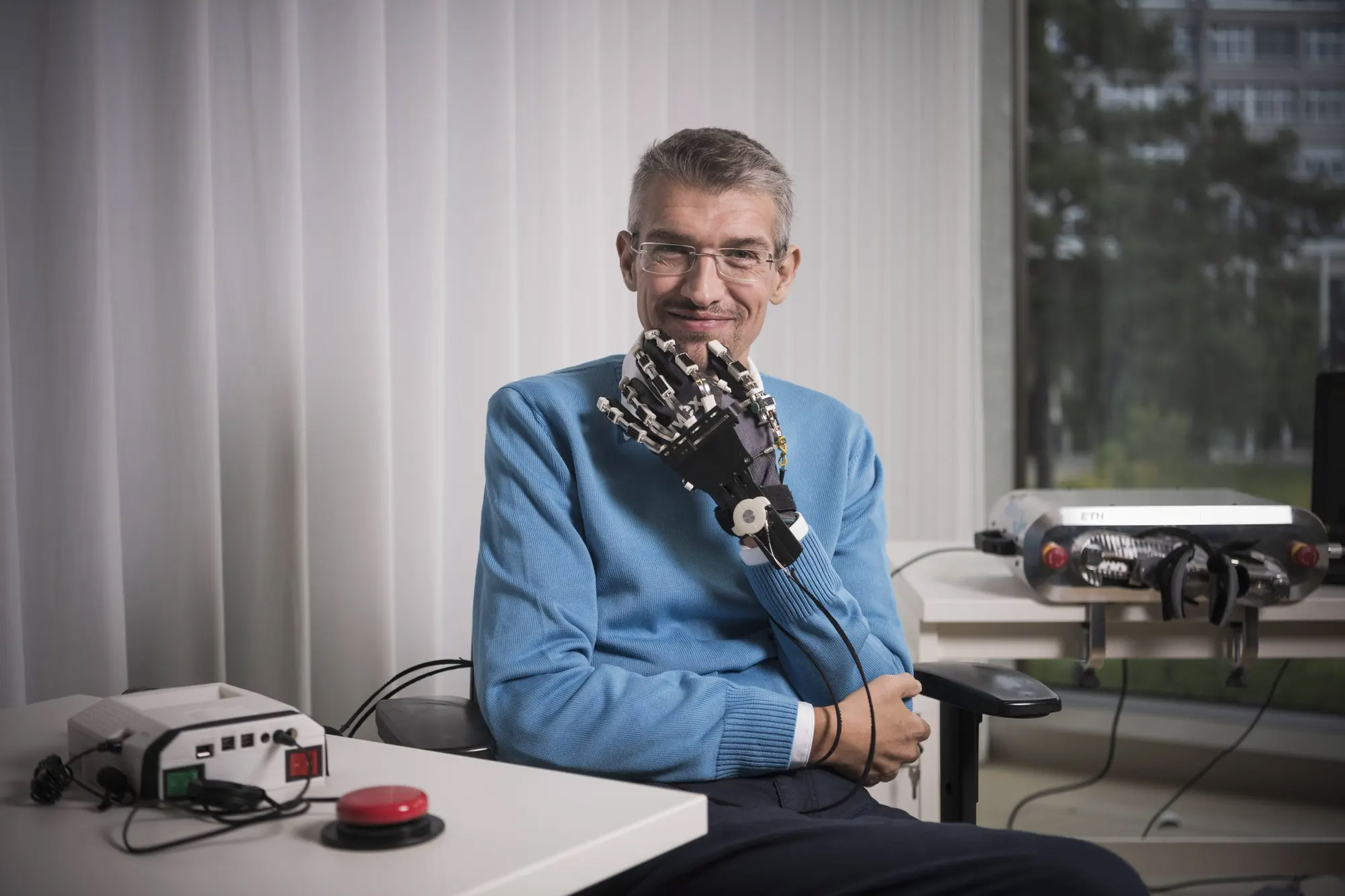Roger Gassert
Roger Gassert is Professor of Rehabilitation Engineering at the Department of Health Sciences and Technology at ETH Zurich. Born in 1976 in Solothurn, Switzerland, he received the M.Sc. degree in microengineering and the Ph.D. degree in neuroscience robotics from the Ecole Polytechnique Fédérale de Lausanne (EPFL), Switzerland in 2002 and 2006, respectively. During his Ph.D., partially carried out at the ATR Computational Neuroscience Laboratories in Kyoto, Japan, he developed an MRI-compatible robot technology that led to the first haptic interfaces allowing safe and dynamic interaction with human motion during functional MRI. These systems are now being used to investigate sensorimotor control and learning with partners in Japan, the UK and Switzerland.
He subsequently participated in the development and clinical evaluation of pioneering robotic rehabilitation systems to train hand function after stroke as postdoctoral fellow at Imperial College London and Simon Fraser University in Vancouver, Canada, supported by the Swiss National Science Foundation. From December 2007 to November 2008 he headed the joint robotics lab between EPFL and the University of Tokyo at the Robotic Systems Lab at EPFL. He joined ETH Zurich in 2008 as as Assistant Professor, and was promoted to Associate and Full Professor in 2014 and 2019, respectively.
At ETH, his research focuses on the development and clinical validation of technologies for the exploration, assessment, and restoration of sensorimotor function in neurological disorders such as stroke, spinal cord injury, multiple sclerosis or Parkinson’s disease.
Roger Gassert is vice president of the strategic board of the CYBATHLON, president of the foundation board of external page Access for all, and Swiss national contact person of the Association for the Advancement of Assistive Technology in Europe (external page AAATE). He is also a co-founder of external page Auxivo AG, an ETH spin-off that develops wearable exoskeletons to support workers executing physically demanding tasks.
In April 2021, he suffered a severe COVID-19 infection, resulting in a hospital stay of seven and a half months with multiple complications, followed by another seven and a half months of intensive neurorehabilitation. Learn more about his story and recovery in a Lunch Bite Seminar hosted by the ETH Competence Center in Rehabilitation Engineering and Science (RESC):
Research Interests and Related Reviews, Commentaries and Blog Posts
Physical Human-Robot Interaction (pHRI)
- Educational paper: Download Physical Student-Robot Interaction with the ETHZ Haptic Paddle (PDF, 1.5 MB)
Rehabilitation Robotics and Assessment-Driven Therapy
- Review paper: external page Rehabilitation Robots for the Treatment of Sensorimotor Deficits: a Neurophysiological Perspective
- Blog post: external page Towards the clinical integration of digital health metrics: a data-driven framework enabling their automated selection and validation
Neuroscience Robotics (Neurobotics)
- Blog post: external page The Potential of Neuroimaging-Guided Sensorimotor Rehabilitation
- Publication overview on MRI-compatible & Neuroscience Robotics
- Download Special Issue of the IEEE EMB Magazine, 2008 (PDF, 32.9 MB)
Assistive Technology
- Blog post: external page Insights from the first CYBATHLON
- Video stream: CYBATHLON Symposium 2020
- Auxivo white paper: external page How Exoskeletons Provide Support
Neural Control of Movement
Contact
Rehabilitation Engineering
Gloriastrasse 37/ 39
8092
Zürich
Switzerland
Funding Support
The chair in Rehabilitation Engineering was made possible, in part, by the generous support of the external page ETH Zurich Foundation.
Publications
For publications co-authored by Roger Gassert, please consult external page Google Scholar or the following list:
